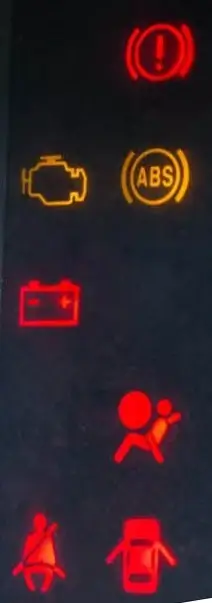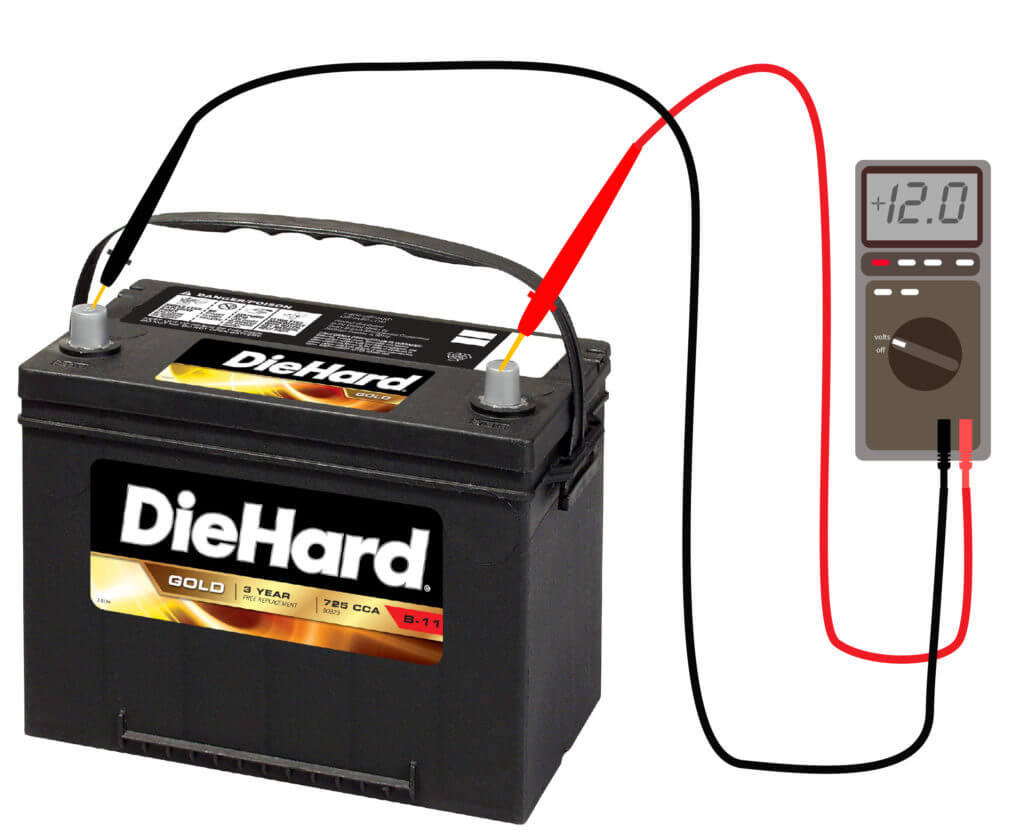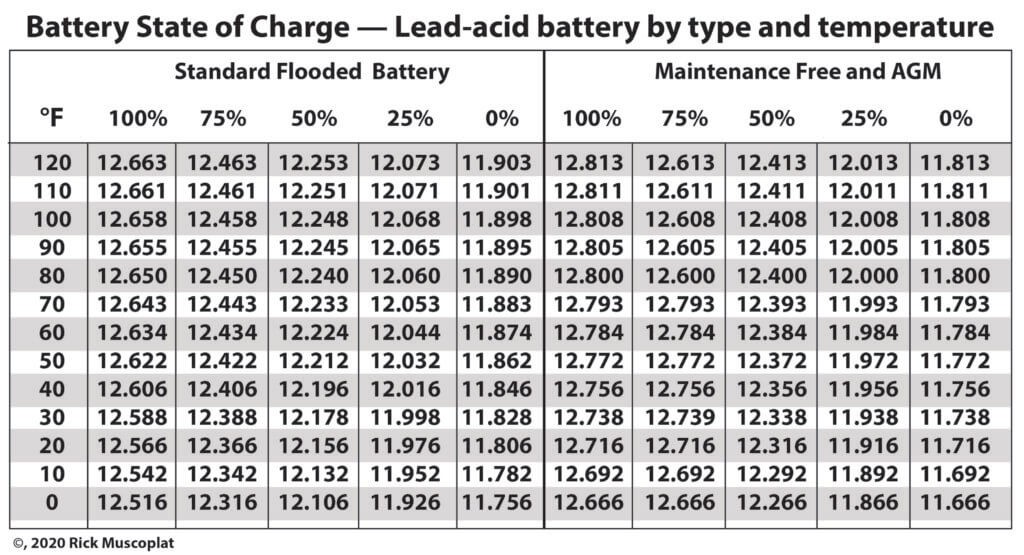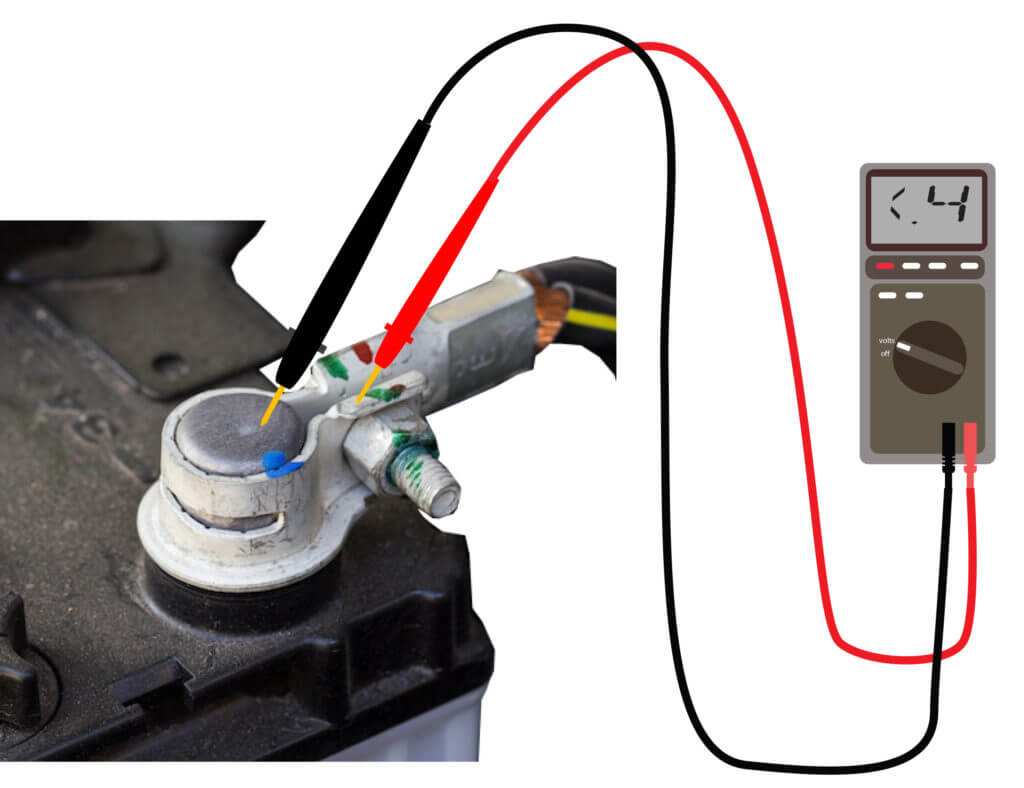Dash lights flash rapidly but car won’t start
When dash lights flash rapidly, that’s the sign of a dead battery or corroded battery terminals
If you try to start your car and dash lights flash rapidly and the car won’t

All your dash warning lights light up and flash rapidly. That’s a dead battery or bad battery connection.
start, the cause is most likely a dead car battery. Some people think that the dash light coming on is an indication that the battery is ok. It’s not. It takes very little power to run the dash lights compared to how much power it takes to crank your engine. In fact, most automotive computers can’t work when voltage drops to 9.6 volts or less. So what you’re seeing with the flashing lights is an indication that voltage is too low for the computers to even function properly.
Start by checking battery voltage
Using a multimeter set to DC volts, touch one probe to the positive battery terminal and the other probe to the negative battery terminal. Battery state-of-charge is determined by the voltage on your meter, the type of battery in your car (standard flooded lead-acid, maintenance-free battery [no vent caps], or absorbed glass mat [AGM]}. Compare the voltage on your meter to the state-of-charge chart below. Measure battery temperature using a non-contact infra-red thermometer.

Anything less that 12.2 volts means the battery is severely discharged

What the numbers mean
Generally, a battery voltage of at least 12.2 volts should crank your engine. However, if the voltage is less than than that, and certainly if the voltage is less than 9.6 volts, you may experience a dash lights come on, but you’ll still have a car won’t start condition.
What’s your next step?
Corroded battery terminals can’t always be diagnosed visually. If your battery terminals don’t have good contact with the battery posts, they can’t conduct enough power to the starter.
If your dash lights flash rapidly but the car won’t start, that can be a symptom of a bad terminal-to-post condition. Another symptom is if you turn the key and hear a single click or rapid clicking.
To diagnose a bad battery/terminal connection, conduct a voltage drop test using your digital meter.
How to conduct a voltage drop test on your car battery terminals and posts
Set your digital meter to the lowest setting on DC volts. Touch one probe to the battery terminal and the other probe to the battery post. The reading you get is the amount of voltage drop in the connection. A reading of less than 0.1 volt is considered a very good connection. The maximum amount of voltage drop is 0.4 volts. If your reading is at or above that 0.4-volt reading, the post-to-terminal connect is not good. You should remove the terminals and clean both the terminals and posts with a wire brush. Then retest.

Test for voltage drop at the battery terminals and posts.
©, 2020 Rick Muscoplat
Posted on by Rick Muscoplat